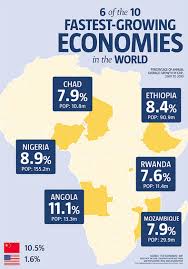Ernest W. Adams suggested political independence; while political institutions matter, independence per se doesn’t lead to growth. An independent China regressed in the mid-20th century while Hong Kong, a British protectorate, flourished. When Deng Xiaoping adopted markets for special economic zones and changed China’s institutions of private property, then they began to develop out of squalor. Who are the Fastest growing economies in Africa?
Diamond’s Guns, Germs, and Steel has a similarly poor understanding of institutions, crediting geography with European development and Pacific Island stagnation. But again, this cannot explain why development accelerated in Europe when it did. The geography of Europe didn’t change between 800 and 1800; but it was only after 1800 that we see development and massive improvments in the standard of living of Europeans.
I recommend Dierdre McCloskey’s Bourgeois Virtues, and its follow-up, Bourgeois Dignity. Here she lays the argument that it was social acceptance of commerce as a virtuous (or at least non-vicious) endeavor that enabled the development of the Industrial Revolution to proceed.
How does this relate to Africa, then? Well, how good are their institutions? Their political institutions, their social acceptance of commerce, their legal protections of private property, etc. Those countries with relatively better institutions are doing better than those with relatively worse.
This is non-rigorous speculation, but it strikes me that former colonies with British-styleinstitutions have fared better than those with continental. As tempting as it might be to compare Canada, Australia, and the US with Brazil, Venezuela, and Guiana – or South Africa with Madagascar – the most striking example has to be the difference between Haiti and the Dominican Republic. Diamond’s geographic explanation can’t find purchase here since they’re two sides of the same island. Nor can political independence, since they share much of their political history. Instead, the institutions that affect wealth-generation, like laws protecting private property and commerce, have lead to the Dominican Republic having a per-capita GDP 15 times higher.

